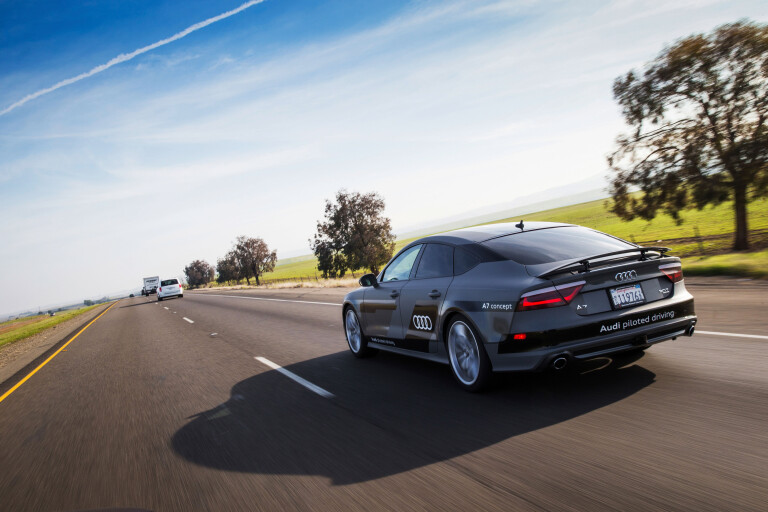
FULLY autonomous cars are years – possibly decades – away, according to Audi chief executive Rupert Stadler.
Days after the an Audi Q7 completed 885km of driverless highway driving from San Francisco to Las Vegas as part of a publicity stunt, Stadler admitted that drivers would continue to play a major role in transport for “a long time”.
“You will see steering wheels and brakes for a long time because the driver will always have a certain responsibility,” said Stadler ahead of the 2015 Detroit motor show.
When asked how search engine giant Google could float the idea of a car without pedals or a steering wheel, he casually pointed to the brand’s track record with producing cars.
“They don’t have any cars.”
Just days into 2015, arch rival Mercedes-Benz showed its futuristic interpretation of how drivers could soon turn their back on the task of driving with its Mercedes F015 concept.
Major car makers – including German giants BMW, Mercedes-Benz and Volkswagen/Audi – are in a race to start selling the first driverless car, although Audi insists any such vehicle will still require some driver interaction.
An Audi spokesman said it could be 20 to 30 years until fully autonomous cars were a reality in showrooms; such are the challenges in programming computers to account for every scenario on the roads.
Stadler was confident Audi would be one of the first to begin selling an early iteration of a driverless car.
“My feeling is that Audi really has to lead,” he said. “Now we are working to bring that one into series production and it will come, let’s say, 2017.”

COMMENTS